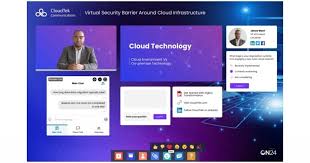The Rise of Virtual Event Conference Platforms
In recent times, the world has witnessed a significant shift towards virtual events and conferences. This transformation has been accelerated by the global pandemic, pushing organizations to explore innovative ways to connect with their audiences remotely. One key element that has enabled this shift is the emergence of virtual event conference platforms.
Virtual event conference platforms offer a range of features and functionalities that facilitate the hosting of online events, such as conferences, trade shows, webinars, and more. These platforms provide a virtual space where participants can interact through live video streams, chat functions, virtual booths, networking opportunities, and more.
One of the main advantages of virtual event conference platforms is their accessibility. Participants can join from anywhere in the world without the need for travel or physical presence. This not only reduces costs but also opens up new possibilities for reaching a wider audience.
Furthermore, virtual event conference platforms offer valuable data analytics and insights that help organizers measure the success of their events. From attendee engagement metrics to lead generation data, these platforms provide valuable information that can be used to improve future events.
As we move towards a more digital-centric world, virtual event conference platforms are set to play an increasingly important role in how organizations engage with their audiences. By leveraging these platforms effectively, businesses can create immersive and interactive online experiences that rival traditional in-person events.
Overall, the rise of virtual event conference platforms marks a new era in event management and opens up exciting possibilities for organizations looking to connect with their stakeholders in a digital landscape.
6 Essential Tips for Choosing and Using a Virtual Event Conference Platform
- Choose a reliable and user-friendly virtual event conference platform.
- Ensure the platform offers interactive features like live chat, polls, and Q&A sessions.
- Provide clear instructions and technical support for attendees to navigate the platform easily.
- Promote networking opportunities by setting up virtual breakout rooms or discussion groups.
- Test the platform in advance to identify any technical issues and ensure a smooth experience during the event.
- Collect feedback from attendees post-event to improve future virtual conferences.
Choose a reliable and user-friendly virtual event conference platform.
When organizing a virtual event, it is crucial to choose a reliable and user-friendly virtual event conference platform. Opting for a platform that is dependable and easy to navigate ensures a seamless experience for both organizers and participants. A reliable platform will help prevent technical glitches or interruptions during the event, while a user-friendly interface will enhance engagement and overall satisfaction. By prioritizing these factors, organizers can create a successful virtual event that leaves a lasting impression on attendees.
Ensure the platform offers interactive features like live chat, polls, and Q&A sessions.
When selecting a virtual event conference platform, it is crucial to ensure that the platform offers interactive features such as live chat, polls, and Q&A sessions. These features enhance attendee engagement and participation, creating a dynamic and immersive virtual event experience. Live chat enables real-time communication among participants, fostering networking opportunities and facilitating discussions. Polls provide a way to gather instant feedback from attendees and engage them in interactive activities. Q&A sessions allow for direct interaction between speakers and participants, encouraging dialogue and knowledge sharing. By choosing a platform with these interactive features, organizers can elevate the overall quality of their virtual events and create meaningful connections with their audience.
Provide clear instructions and technical support for attendees to navigate the platform easily.
To ensure a successful virtual event conference, it is crucial to provide clear instructions and robust technical support for attendees to navigate the platform effortlessly. By offering detailed guidance on how to access different features, participate in sessions, interact with other attendees, and troubleshoot common issues, organizers can enhance the overall attendee experience and minimize confusion. Additionally, having dedicated technical support staff available during the event can help address any technical difficulties promptly, ensuring that attendees can fully engage with the content without disruptions. Clear instructions and reliable technical support contribute significantly to creating a seamless and enjoyable virtual event conference for all participants.
Promote networking opportunities by setting up virtual breakout rooms or discussion groups.
To enhance networking opportunities during virtual events, consider setting up virtual breakout rooms or discussion groups. By creating these dedicated spaces, participants can engage in more intimate and focused conversations with like-minded individuals, fostering connections and collaboration. This feature not only encourages interaction but also provides a platform for attendees to exchange ideas, share insights, and build relationships in a more personalized setting. Virtual breakout rooms or discussion groups can significantly enrich the overall experience of your event and ensure that participants have meaningful interactions that extend beyond the main sessions.
Test the platform in advance to identify any technical issues and ensure a smooth experience during the event.
Testing the virtual event conference platform in advance is a crucial step to guarantee a seamless experience for both organizers and participants. By conducting thorough testing, any potential technical issues can be identified and resolved before the event, ensuring that everything runs smoothly on the day of the conference. This proactive approach not only helps in preventing last-minute disruptions but also instills confidence in all stakeholders, leading to a successful and glitch-free virtual event.
Collect feedback from attendees post-event to improve future virtual conferences.
Collecting feedback from attendees post-event is a crucial step in improving future virtual conferences. By gathering insights on what worked well and areas for improvement, organizers can tailor their strategies to meet attendee expectations and enhance the overall event experience. Feedback allows for continuous learning and refinement, ensuring that each virtual conference becomes more engaging, interactive, and valuable for participants. Embracing feedback as a valuable tool for growth can lead to the development of more successful and impactful virtual events in the future.


